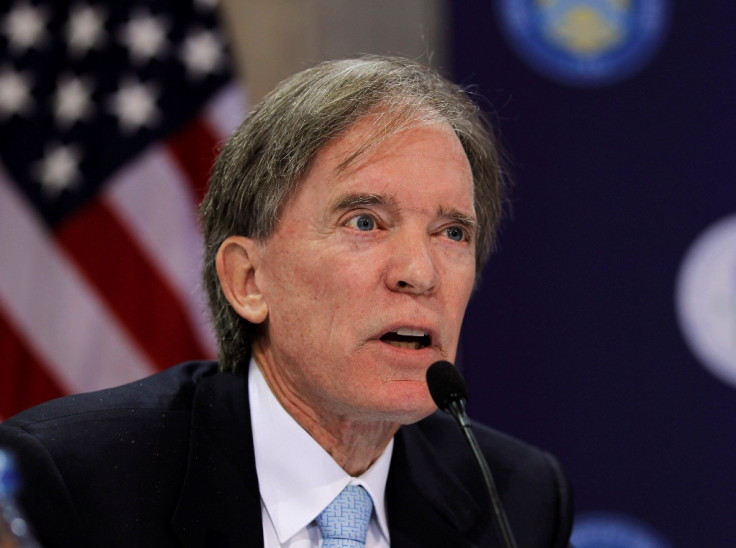Bill Gross: Central Banks' Monetary Stimulus Not Helping Create Inflation

Renowned investment manager Bill Gross has said deflation remains a growing possibility, despite growing monetary easing policies by central banks across the globe.
In his second monthly investment outlook after joining Janus Capital Group from asset management giant Pimco, Gross said the global economy and its financial markets are insecurely grounded.
"Decades and indeed centuries have taught us that both inflation and deflation are the enemies of stability and growth, but knowing which one is just around the corner can be difficult," he wrote.
"Prices change – and while they usually go up these days, sometimes they do not. We are at such a moment of uncertainty."
He noted that almost all central banks have targeted an inflation rate of 2%, saying the level is "sort of like a firebreak."
The banks are trying to keep inflation rate at 2%, as they fear that if the rate approaches zero, there will be growing deflationary pressure.
Central banks in the US and Japan have spent a combined $6tn (£3.8tn, €4.8tn), and the eurozone is planning to spend another $1tn to create inflation, but the scheme is not working like it used to, Gross said.
"The trillions seem to seep through the sandy loam of investment and innovation straight into the cement mixer of the marketplace. Prices go up, but not the right prices," he said.
Gross noted that the monetary easing policies have helped increase asset prices, but they did not lift up the cost of goods and workers' wages.
"Alibaba's stock goes from $68 on opening day to $92 in the first minute, but wages simply sit there for years on end. One economy (the financial one) thrives while the other economy (the real one) withers," he said.
He cautioned investors that while inflation is a necessary condition for survival, it is not a "sufficient condition for increasing wealth at a rate necessary to satisfy future liabilities".
He advocated more spending from the governments, which dislike deficits and favour balanced budgets.
"Until then, deflation remains a growing possibility – not the kind that creates prosperity but the kind that's the trouble for prosperity," he concluded.
© Copyright IBTimes 2024. All rights reserved.









